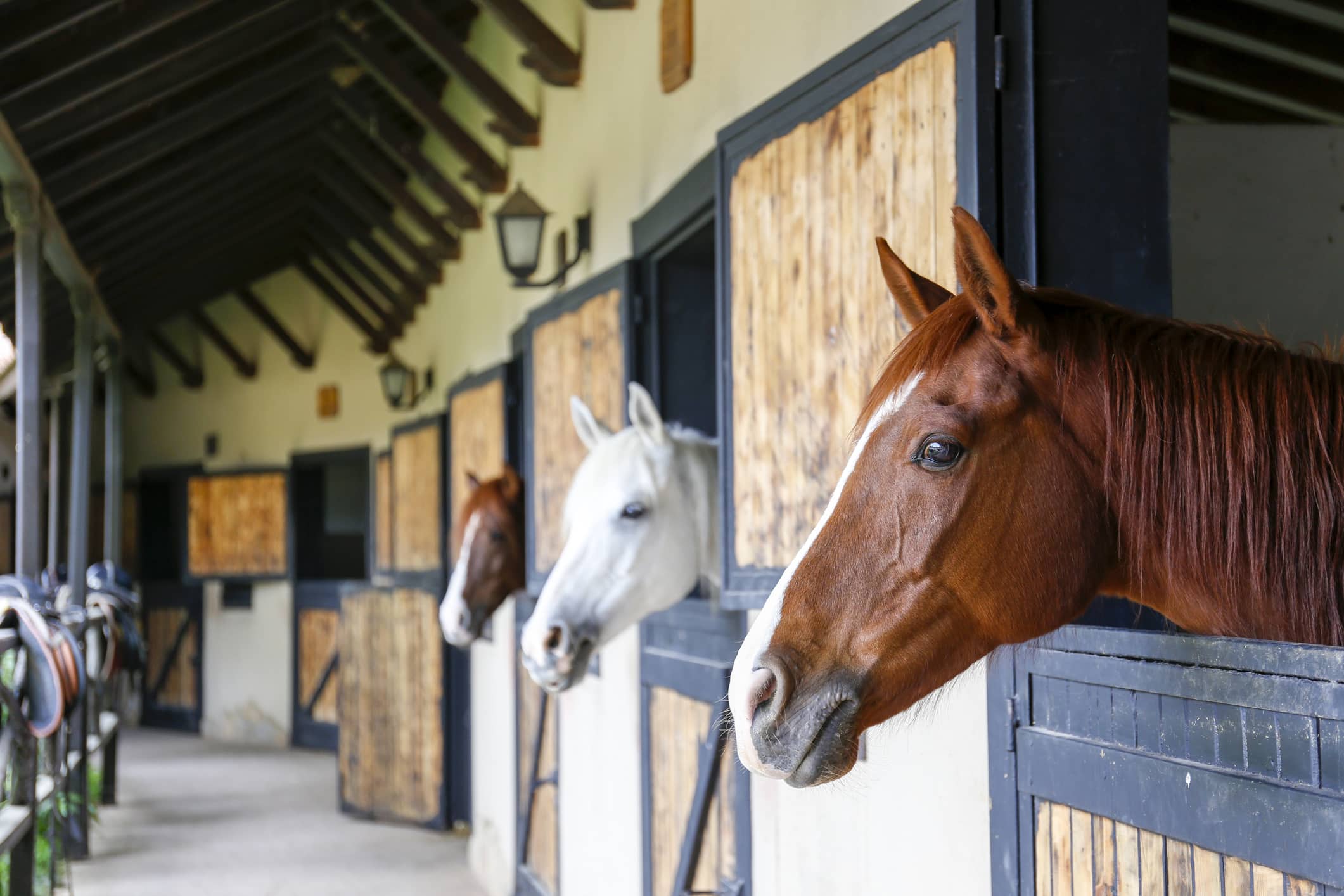
Horse Boarding Liability
By: Crystal McDonough
Whether you are boarding your horse or providing boarding facilities and services you should always have liability insurance, a well-written boarding contract, and waivers and/or releases as well as posting the standard liability signage per your state’s equine laws. If you are just starting a boarding operation you might want to consider setting up an LLC or corporation for the business as well so that all business activity falls under the business entity rather than you personally.
Insurance
A few types of insurance for horse boarding facilities includes (but is not limited to) fire and theft, commercial liability, and care, custody, and control policies. An insurance provider will be able to provide more comprehensive details regarding the types of insurance coverage needed depending on the types of activities and boarding at a facility. In addition, horse owners should also carry sufficient insurance to cover their horses for potential liability arising from leasing, lessons, guests, riders, veterinary care, barn/stable rules, safety, and state specific equine laws.
Boarding Contract
A well-written boarding contract should cover more than just payment terms and length of stay. It should include specifics related to feed and feeding schedule, bedding, exercise, timing and frequency for cleaning stalls and paddocks, veterinary care, injuries and/or illness, special care, and decision making when the horse owner is unavailable or absent. The contract should include details regarding the types and policy limits for insurance policies covering the boarding facility and covering the horse. The contract should also include terms for default and boarding facility remedies in the event of a breach of contract by the horse owner.
Let’s face it, horses sometimes find ways to break a gate or a fence. My horses seem to find ways to break our irrigation pipes every year. A good boarding contract should address if the horse owner pays, the barn or stable pays, or if there is a joint payment of some set fee for damages caused by the horse. What happens if the horse causes injury or death to another animal or a person? Most boarding contracts include a risk of loss or injury section that requires the horse owner to assume these risks.
Some boarding facilities require the horse owner to provide a warranty regarding the horse’s health. This warranty may require that a horse be free from diseases whether infectious, transmissible, or contagious prior to boarding. This warranty also requires the horse owner to notify the boarding management if the owner has any reason to believe the horse has been exposed to or becomes sick from any such diseases.
Disagreements can arise between boarding facilities and horse owners so it is important to include some type of dispute resolution section in the contract such as mediation, arbitration, or some other terms for resolving disputes.
Liability Waivers and Releases
It is not enough to hang the standard liability signage per your state’s equine laws. Each person who may be around or near a horse or may ride a horse must sign a waiver and release in case of accident, injury, or death. This policy should apply to the horse’s owner, family, guests, students, facility employees or volunteers, and any and all persons who may be near the horses or are participating in a an activity at the facility.
Waivers and release agreements (also known as hold harmless agreements) typically cover the rules and risks related to riding or handling horses and are meant to protect the boarding facility from liability. These agreements also serve to notify the rider that she assumes all the risk associated with riding, handling, or being near the horse. The rider acknowledges in writing that she understands all the risks and assumes all liability in case of injury or death. Each state has statutes governing the liability and assumption of risk for equine activities that should be included in a waiver or release agreement. It is also important to include that the rider assumes the risk of damage to property or other animals when handling or riding the horse.
Liability waivers and releases can be useful in providing a strong defense if the boarding facility is sued and can assist in dispute resolution situations. In addition, they might discourage a person from filing a lawsuit. However, no waiver and release or contract can prevent a person from filing a lawsuit. It is important to have the proper insurance coverage along with well-written and enforceable contracts, waivers and releases that are in compliance with your state’s laws and specific to the boarding facility and the types of activities at the facility.
If you are boarding horses at your barn or stables or if you are boarding your horse at a facility, then you should contact your attorney to make sure you have the proper contracts, waivers and releases and that you understand your legal obligations and risks.
Contact us to schedule an appointment to make sure you are protected.
